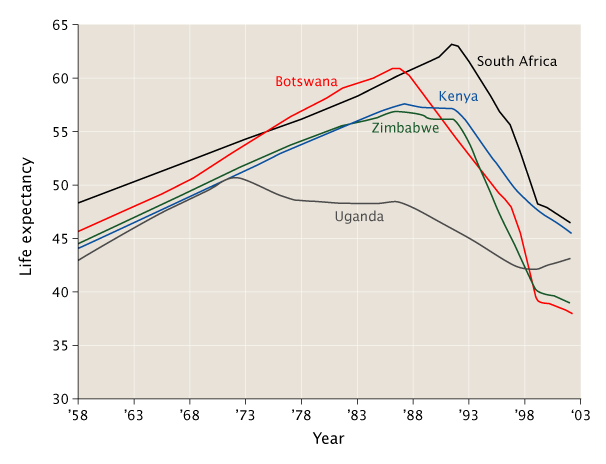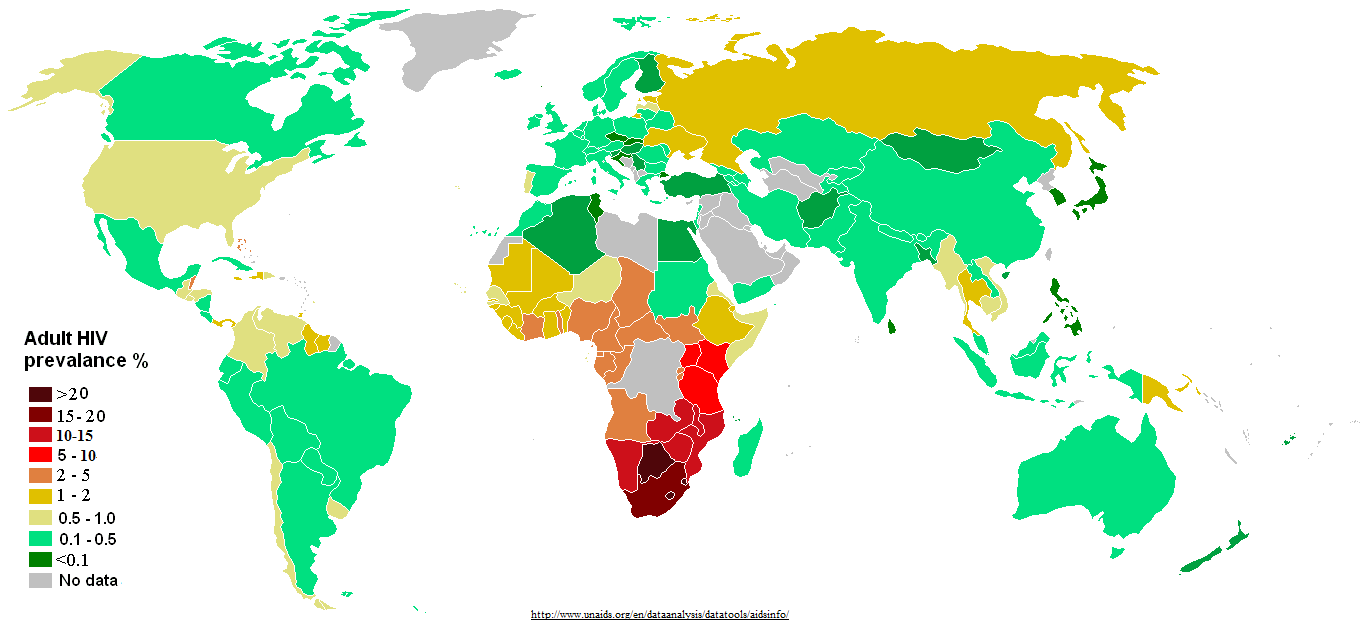Enormous resources aimed at fighting HIV/AIDS are going to waste, or not being used properly because of punitive laws and human rights abuses, resulting in a “stifled” global AIDS response and tragic loss of human life, says a new report issued by the Global Commission on HIV and the Law. The authors are calling for laws to be put in place which save lives, money, and put an end to the epidemic, and protect human rights.
The Global Commission on HIV and the Law consists of HIV, legal, and human rights experts, as well as a number of former heads of state.
The report, entitled “HIV and the Law: Risks, Rights and Health,” revealed that governments in every corner of the world have wasted the potential of legal systems in the HIV fight. Laws which are evidence based and protect human rights boost the global AIDS response, the authors wrote. The authors emphasized that governments must update their laws as soon as possible.
The authors based their report on “comprehensive research” and face-to-face accounts from over 1,000 people in 140 nations.
Helen Clark, United Nations Development Program Administrator, said:
“Bad laws should not be allowed to stand in the way of effective HIV responses. In the 2011 Political Declaration on HIV and AIDS, Member States committed to reviewing laws and policies which impede effective HIV responses. One of the key contributions of the Commission’s work has been to stimulate review processes and change in a number of countries.”
In some countries, the legal system condones customs that deliberately do not protect females – both women and young girls – from violence, thus increasing their vulnerability to HIV infection. In some cases, intellectual property laws and policies are not in line with international human rights law; one of their consequences is to undermine access to treatments and prevention services which save lives.
Some laws drive certain sectors of the population underground, making them much less likely to access essential health services. Examples include injecting drug users, transgender people, sex workers, and men who have sex with men. These people end up with a considerably higher risk of becoming HIV positive and suffering the worst complications of AIDS.
Below are some highlighted details revealed in the report:
- It is a crime to expose another person to HIV, or transmit HIV to them in over 60 nations. There are over 600 recorded cases of people being convicted of such crimes, including some in the United States. One of the consequences of this law is that people tend not to get themselves screened for HIV, do not know whether or not they are infected, or never disclose their HIV-status.
- Same-sex sexual activity is criminalized in 78 countries. In some, such as Yemen and Iran, same-sex sexual activity is punishable by death. In Malaysia and Jamaica, sex between men can lead to long prison sentences. This kind of legislation makes it much harder to prevent HIV infection amongst vulnerable groups of people.
- Some harm reduction services for injecting drug users are criminalized in several countries, including the Philippines, Malaysia, Myanmar, China and Cambodia. Decriminalizing harm reduction services has been proven to drastically reduce HIV infection rates among injecting drug users. In Switzerland and Austria, for example, new HIV infections among injecting drug users have almost stopped.
- Sex work – some aspects of sex work are criminalized in over 100 countries. In some countries, sex workers are exposed to violence because of legislation. Their social exclusion makes it much harder for them to have access to vital HIV prevention and care services.
- Marital rape – in 127 countries there is no law to protect women from marital rape, making it virtually impossible for them to negociate safe sex and protect themselves from becoming infected with HIV.
- Sex education – some countries have laws which make it illegal to provide young people with sex education, harm reduction services, reproductive and HIV services, resulting in a much faster spread of HIV infection.
- Excessive intellectual property protections – some laws make it much harder to provide affordable second-generation treatment for people who are HIV-infected or have AIDS. Mainly because the host country is not allowed to produce low-cost medicines.

HIV/AIDS caused a sudden drop in life expectancy in these hardest-hit African countries
Since the early 1980s, there have been some brilliant scientific breakthroughs in lifesaving HIV prevention and treatments. Billions of dollars have been invested in R&D. Millions of individuals, their loved ones and communities have benefit enormously from these innovations.
However, the authors found that too many countries squander resources by enforcing laws that undermine the whole anti-HIV/AIDS program.
Chairman of the Commission, Former President of Brazil, Fernando Henrique Cardoso, said:
“Too many countries waste vital resources by enforcing archaic laws that ignore science and perpetuate stigma. more than ever, we have a chance to free future generations from the threat of HIV. We cannot allow injustice and intolerance to undercut this progress, especially in these tough economic times.”
The authors explain that the global HIV response can only be truly successful if it is backed with laws which are based on public health evidence and human rights. Such laws do exist; they need to be replicated in every region of the globe.
Discrimination on the basis of HIV status must end, as do those that criminalize HIV transmission on non-disclosure of HIV status.
Laws that allow violence against women – described in the report as “the scourge of violence against women and girls” – must end.
Same-sex sexual activity needs to be freed from discriminating laws, so that vulnerable people can be brought in for vital HIV and AIDS services. Laws on injecting drug use and voluntary sex work also need to be based on public health evidence.
Nevena Ciric, a Serbian woman living with HIV., said:
“Women are half the world’s population and young people are our future. Countries must enact laws that prevent violence against women and girls, as well as ensuring that laws support the provision of comprehensive sexual health education and services to young people.”
Governments worldwide must be held accountable to the highest standards of international law, public health and universal human rights, the authors added. The United Nations, civil society groups, as well as current and former global leaders can play a critical role in this.
Maurice Tomlinson, a Jamaican lawyer and legal advisor for AIDS-Free World, said:
“Governments across the world have a responsibility to take bold action and repeal laws that stem from ignorance and intolerance. Jamaica, where HIV prevalence among men who have sex with men is among the highest in the world, anti-sodomy law breeds fear and violence and drives these men away from the care and treatment they need.”
Governments around the world need to see those which have enacted laws that help the HIV/AIDS fight as pioneers and sources of enlightenment, and follow their leadership.
African and Caribbean countries that do not make same-sex sexual activity a criminal offence have lower HIV rates among men who have sex with men, compared to those that criminalize such activities.
Countries, including Germany, Portugal, Switzerland, Australia and New Zealand, which treat injecting drug users as patients and not criminals have more comprehensive HIV services, and much lower HIV transmission rates among drug users.
Former President of the Republic of Botswana Festus Mogae, who is also a member of the Commission, said:
“We must ensure that new interventions to prevent and treat HIV reach the people who need them most.
Laws that prohibit discrimination and violence and protect at-risk populations are a powerful, low-cost tool to ensure that HIV investments are not wasted. Undoubtedly, enforcing such laws is complex and politically challenging, but our report shows that it can and must be done.”
Written by Christian Nordqvist
